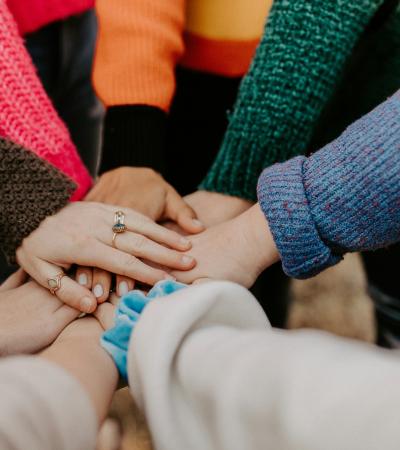Public humanities work in public libraries is essential. The core mission of public humanities work is to provide opportunities for people to expand their knowledge and understanding of the world and the human experience, to promote understanding of and form relationships with other people, and to expand our understanding of the past and present.
The potential of humanities work in public libraries is boundless. According to the Pew Research Center, most Americans find libraries to be reliable sources of information. Alongside offering research and information-seeking services, public librarians have a responsibility to craft and deliver reliable, fact-based public programming on historical and contemporary issues. Public libraries are in a wonderful position as trusted, communal spaces to deliver impactful, timely humanities content to the public.
The role of public historians
Public historians are at the forefront of connecting the public with the humanities. Public historians are trained to bring historical content to the public in meaningful, accessible ways through museum displays and tours, park sites signage and activities, access to archival materials, public programming at public and academic libraries, and more. (This is certainly not an exhaustive list of how public historians work in their communities, and the National Council on Public History is a great resource to learn more about the field.)
Public historians across the country are active in public libraries in dozens of ways, including (but not limited to):
- Leading and planning public programs
- Designing and administering community oral history projects
- Maintaining and providing access to archival collections
- Conducting genealogical research
- Planning public exhibits
Public humanities at Princeton Public Library
As the public humanities coordinator at Princeton Public Library (PPL), I find myself at the intersection of several roles: public historian, librarian and event planner. My training and previous work as a public historian informs everything I work on at the library, particularly public programming. Public humanities work at PPL is made possible with a Challenge Grant from the National Endowment for the Humanities. The funding from this grant supports free public programs, print and electronic collections development, a museum pass program, and a full-time position.
One of the most impactful ways to engage the public with humanities content is through public programming. Here are a few examples of successful humanities-based series at Princeton Public Library:
- Princeton & Slavery Project: This major project to examine Princeton University’s ties to slavery started at Princeton University and expanded to include partners throughout the town, including PPL. This town-wide collaboration drew in thousands of people to lectures, exhibits, and more.
- The Vietnam War series: In addition to screening all episodes of the Ken Burns and Lynn Novick series “The Vietnam War,” PPL hosted discussions and associated programming to provide multiple avenues for engagement.
- War of the Worlds: To mark the 80th anniversary of the fictional alien attack (not far from Princeton), this series had some interesting elements including an opportunity to view original letters written from Princeton residents to Orson Welles after the “War of the Worlds” radio broadcast.
Approaching each series with a public humanities angle ensured a couple of things: that each series was grounded in historical scholarship and planned with a non-expert public audience in mind, and that each series presented a balance of program types (lectures, book discussions, concerts, film screenings, workshops, and more) to provide multiple ways to engage.
Expanding humanities through partnerships
The importance of partnering with local organizations to expand humanities work at public libraries cannot be understated.
Local historical societies, state humanities councils, historical sites, National Park sites, universities, community organizations, and other libraries are invaluable sources for possible presenters, expertise in specific topics, help in planning or hosting events, and marketing programs. Local universities with history programs requiring internships can also yield fruitful partnerships.
With thoughtful topics, reliable partners, and good planning public libraries can enrich their humanities-based public program offerings.



